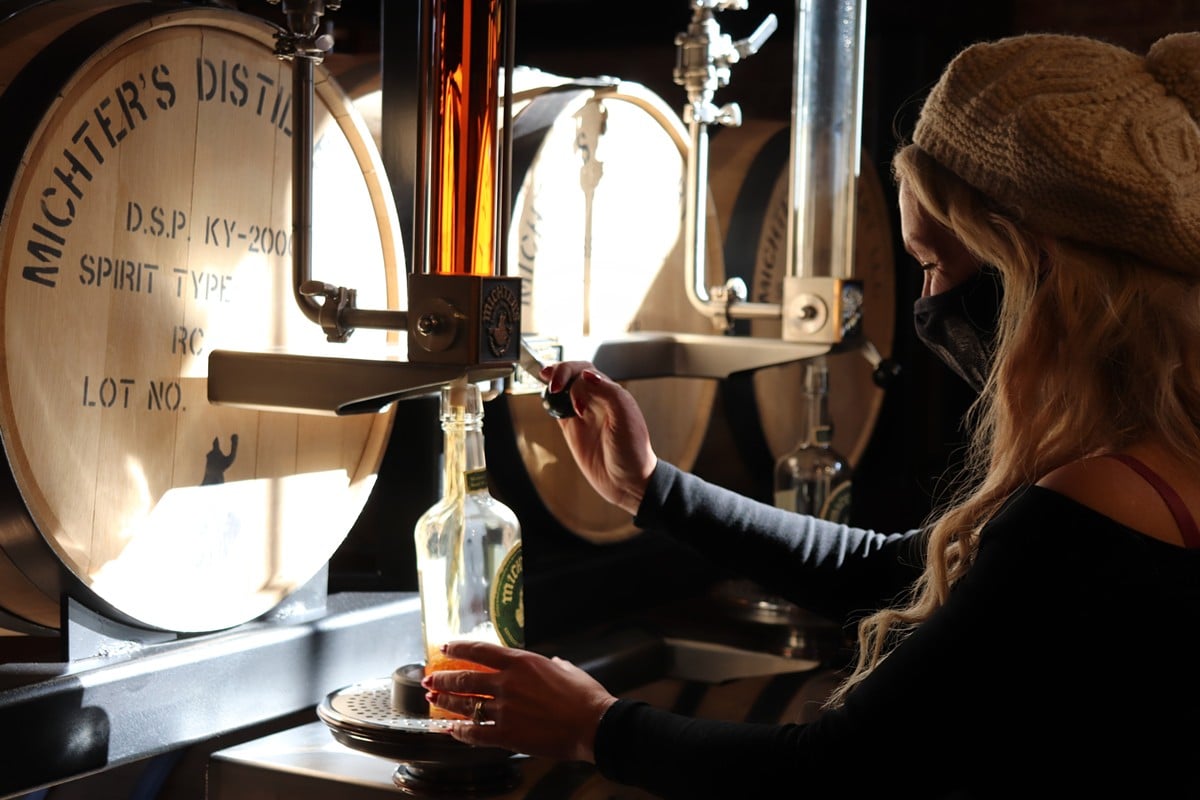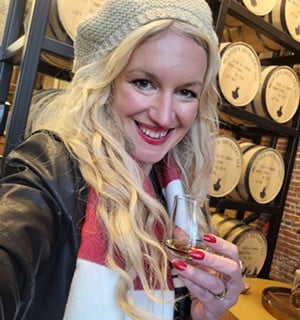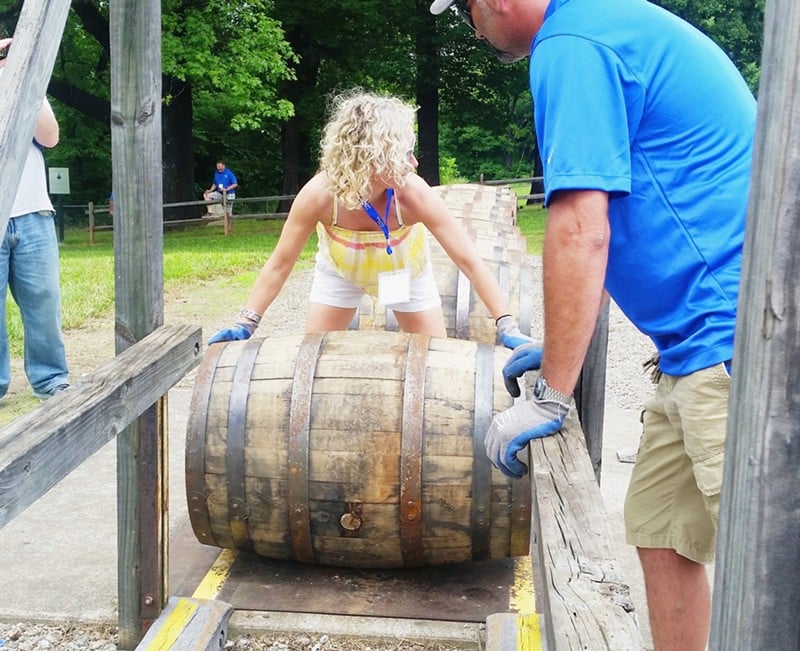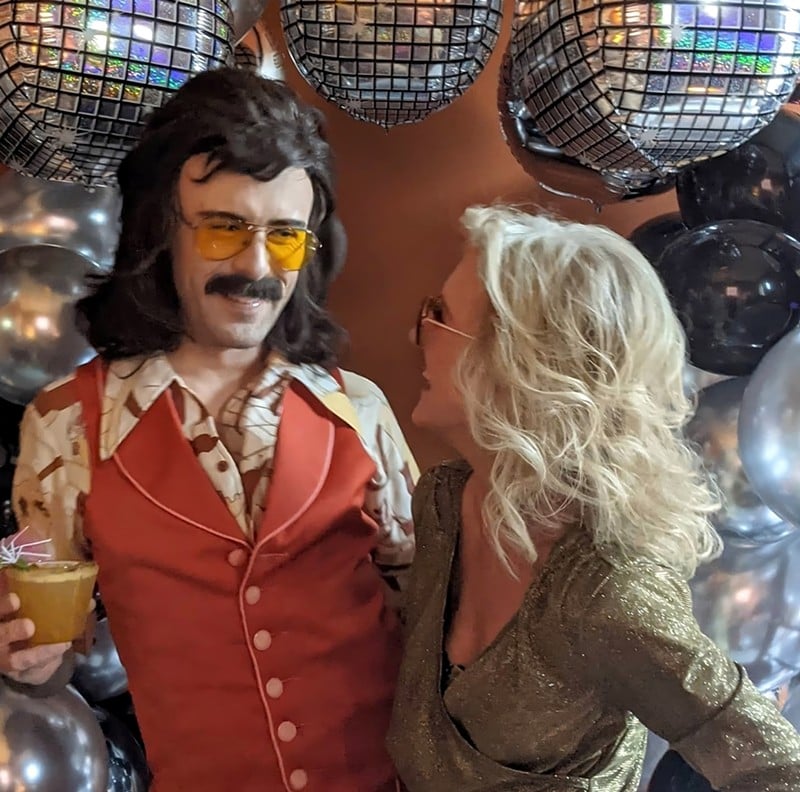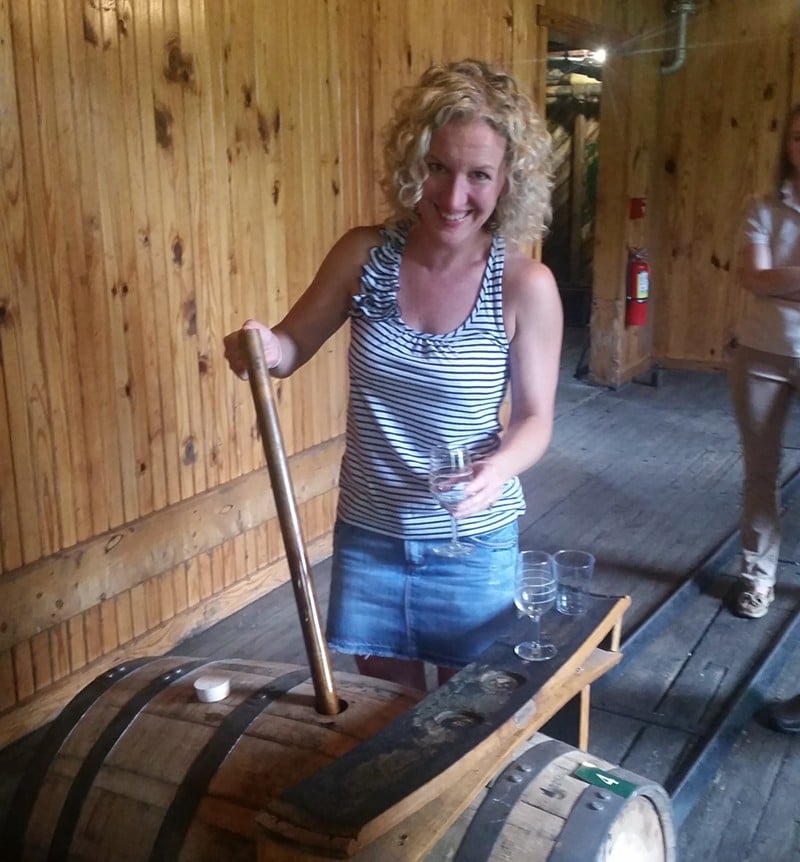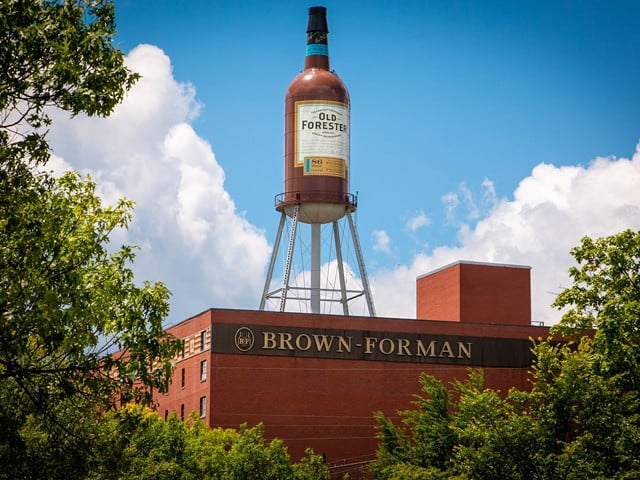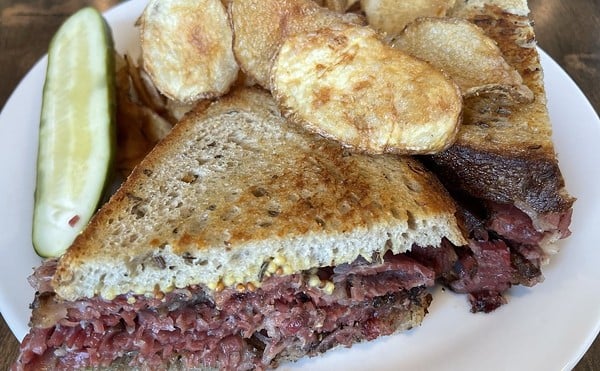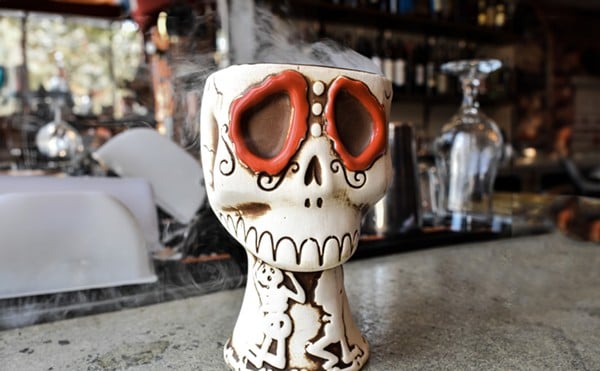The beginning of the end, for me, was when a man laughed at my order in an Old Louisville dive bar of, wait for it, Wild Turkey 101 with ginger.
“You’re drinking that?” he asked, his incredulity making it clear this man does not know his bourbon — or how to order at dive bars; you get a liquor and a mixer, dude. Ready for a fight (this wasn’t my first pour of the evening), I fixed my gaze on his sneering face. “If it’s good enough for Jimmy Russell, it’s good enough for me,” I replied.
Hi, I’m Dana McMahan, a longtime freelance writer who’s covered bourbon’s stratospheric rise since 2012, when a pitch about how bourbon “seems to be getting a lot of buzz lately” landed my first big travel assignment, a story on the Urban Bourbon Trail. Starting the day exploring the trail as an avowed bourbon hater thanks to that godawful introduction in college by way of far too many shots of Beam, I wrapped the night as a burgeoning bourbon enthusiast. This newfound appreciation was thanks to the patient guidance throughout the day from Louisville bartenders along the trail eager to share their love of our native spirit.
Barrel Proof Enthusiasm
For a few exuberant years, I rode the bourbon wave, feeling cool because I was part of this hot new trend, hobnobbing with master distillers and bourbon celebrities, thieving from the barrels in the ethereal glow of rickhouses, learning the magic and art and science of distilling, sampling the best of the best, often for free, and coming to love this spirit from my very own home with a passion and pride as fiery as juice right off the still.
A few oceans of bourbon and a dozen years later, I’m a duly certified Bourbon Steward with a whole slew of articles under my belt, many of them thanks to bourbon’s rise and Louisville’s growing popularity fueling my own career. Today, though, I rarely drink it, and the bourbon scene is barely recognizable from that first day.
With Bourbon Heritage Month upon us, and my feelings about the industry conflicted, I wanted to peel back some layers and talk with someone with deep ties to Kentucky bourbon — and someone who doesn’t mince words. One of the coolest friends in bourbon I’ve made along this journey, Eddie Fieldhouse III has been involved in destination management and trip planning for people visiting Kentucky for more than a decade. Most recently he launched The Kentucky Hug, a centralized platform for booking bourbon experiences.
Maybe they’re in different sections, but Eddie and I have had front row seats to the bourbon boom. Undeniably that boom has come with good — economic growth, bringing people to our city and state. But not all growth is good, at least not if it’s running away without an eye to the future.
Lost to the Angel’s Share?
Ten years or so ago, ”I was taking guests to a factory in the woods, and we were meeting a blue collar worker,” Eddie says. “And at the end of that tour, we were taking a small taste of bourbon.” (This was through a loophole in the liquor laws that said your friends could serve you alcohol without having to go through the ABC, he says!) Visitors were people with a deep connection to bourbon through their own love of the drink, more than likely passed down through their families. And that’s what visitors wanted, Eddie says, was to make a personal connection with the people behind the product.
They rarely had the opportunity to buy a bottle, he says, let alone had they camped out overnight on the hunt for the latest hot new release. Meanwhile in Louisville, that bourbon newcomer like me could sit and chat with a bartender and come to appreciate the drink, even go on to make it a mission to bring more people into the fold.
Today? While they’re still here if you know where to look, it’s become a lot harder to find that bartender, Eddie says, because they're in the weeds “making sure that they're lighting the wood chips on fire in the right way with the right glass and the right ice.” And if you’re on a distillery tour now at one of the dozens spangling the state, you’re not very likely talking to someone with close, personal ties telling their own story.
What the hell happened?
Raising the Bar (But Why Though)
As distilleries have commissioned slick visitor experiences (some hiring Disney alumni), as bars have opened with elevated cocktail offerings well beyond the humble bourbon and ginger and into the absurd, “we have changed the marketing at a brand level to be about the alcohol and not about the people… and that is where we've missed the boat,” Eddie says.
Brands have also “specifically engaged with the higher and higher end [consumer],” says Eddie. And we’ve gotten away from the authentic story, he says, in favor of cleaned up, pretty stories that all sound the same. Along with the glow-ups and the big, shiny expansions at so many distilleries, and the bars spending money like they were minting it on fancy bar tops and such just because they can, we’ve missed the point. “It was all of the different stories that made it special,” he says. “That is authentic, that is American, that is the dirt and the grime in the corner. You know what I mean?”
Look at the rats. People love to post photos of a distillery cat on their Insta. What we’re not talking about, he says, is that those kitties are there to eat rats. Because this is a production facility. In farm country. In Kentucky. And if we’re seeing what’s real, in the place where real people work, that’s just part of it.
But as “brand experiences” open in downtown Louisville or Lexington or Newport, he says, “you're telling the customer, ‘no need to go out there into the state… you can just sit right here and drink this alcohol.’”
What’s Behind the Bottle?
Because the needle has also moved to emphasizing the booze in the bottle, he says. And yes, of course, the product itself has always been alcohol. But what are we losing when that’s the only headline?
“We have the ability in Kentucky to reshape how history is told in America from a first person point of view,” Eddie says, “through passed down verbal histories… This includes the working class, Black, brown, LGBTQIA, indigenous peoples, farmers and craftsmen… We have a piece of every person's story.”
And bourbon has the avenue for us to create a better future for everybody, he goes on. “But we’ve got to put those people in the center of the story. Not the 300 years of what that brand is, but the 300 years of the people behind it.”
“What I want to see more of,” Eddie says, “is the person, the craftsman, the employee at the distillery, the person on the factory line being the one telling their story. We should change [the marketing] from the blurred out picture with an in-focus bottle to a picture of people at a distillery with other people. You know, that is what it's about. It's about the people. It's about the community. It's about the history.”
Double Fisting It
To correct our course, we need to be thinking about growth on a long-term scale, beyond our lifetimes, Eddie says. “Because if you want somebody to be a long-term supporter of your brand, well, you’ve got to have something that's going to survive the long term, that's not a different product every three weeks, you know, with a different label and a different color palette.”
“If we keep going down this road,” Eddie says, “we're going to end up with a whole lot of very fancy, very dark-lit bars where only people from Wall Street drink to brag about their [bourbon] collections.”
I met those people when I visited Wild Turkey’s distillery on a media jaunt a few years ago. This trip was one of many I got to enjoy, part of my incredibly privileged bourbon education, coming up as the makers themselves were rocketing to fame. As the only local and the only woman on this press trip, I was positively giddy to ramble the grounds, hear master distiller Jimmy Russell and his son Eddie’s stories, and sip their favorite products alongside them (that’s where I asked Jimmy and learned his go-to sipper is 101).
At dinner we gathered at tables while the setting sun drenched the postcard-perfect hills in golden fire. Selfishly, I grabbed a seat next to Jimmy. Turns out, it didn’t matter. Were these out-of-town spirits writers vying to soak up firsthand knowledge from this legend? Nah. They were too busy comparing their bottle collections back home. I’m still pissed. And yes, it was their loss, but it’s to our detriment, too.
Preach it Eddie: “If you don't plant your feet firmly in the ground here in Kentucky and say, ‘we are the authority, we are the people that are going to tell you what this is and what it means and how it got here,’ if we don't say that and we say, ‘you know, you can listen that podcast while you're sitting in traffic in LA and you can be more of an expert than anybody else here,’ we end up with the person that travels here from wherever they're coming from, walks into a bar in Bardstown, and says, ‘do you know how to make an Old Fashioned?’”
Jesus.
The person working there, he says, probably “has lived in Bardstown for not just their whole lives, but [their families] for multiple generations. … And we have somebody from God knows where coming in and making that person behind the bar feel small and meaningless, and that person, regardless of how they choose to make that Old Fashioned, it’s the right way to do it, because it's their way.”
We’re not LA, we’re not New York, we’re not Chicago, Eddie says. If you, the bourbon drinker, want it to be about the cocktail, go find a Death and Co., he says. “That's not what Kentucky is for. It's about … coming into these communities, and being respectful and understanding that you're getting access to a place in the world that most people never get access to. And… those communities are welcoming you in with open arms and the warmest hospitality in the world.”
The Case for Slow Bourbon
So how do we hold on to what made bourbon, and us, so special to begin with?
Because remember those early, heady days? I do. I freaking wallowed in them. Eddie does: “There is a tremendous amount of joy and excitement in Kentuckians and Louisvillians,” he recalls, “that ‘oh, my goodness, for the first time we are cool, you know, we are the place to be.’”
I felt it. I lived it, hosting travelers in my Airbnbs during the early boom, proud to send them to my favorite bars and distilleries, to lead my own small-group bourbon tours for travelers thirsty for all things whiskey, Kentucky whiskey.
“This is gonna sound crazy,” Eddie says, “but slow down. The bartenders need to slow down, the brands need to slow down. And that sounds really counterintuitive to capitalism as we know it.”
But, he says, “that's how we get away from being Broadway in Nashville… if we don't want 2000 people just walking around with a glass, [going] place to place to get it filled up.”
After all, he says, “going way back, the reason why Louisville and Portland exist is because people had to stop here. You had to stop here and wait for the river to get high enough to be able to pass it.”
Thinking about those folks making their way along the Ohio, they were “sitting and meeting the community, being comfortable and having fun in this place that you had to wait in,” he says. “And that time of the year where people were waiting was what is now today, the peak season of tourism, you know, the warm months of the year when the water is at its lowest.”
And Now a Word to the Industry
“That's something we need to think about,” Eddie says, “that it's okay to slow down… so that you have the time and the opportunity to talk to the person across the bar rather than trying to keep up with the rush of people that are coming in the door as if it's going to end any day. We are standing in so much power as bartenders, as the service industry, as brands, and it's so new and it's so fresh that we have forgotten that. If we understand the power and authority that we carry and the ability to shape what this experience looks like, we can build more of what we want to see.”
To do that, we have to “be in charge of the customer experience that we're giving,” Eddie says. “Be in charge of who you are, and the space and the power that you take up. And I think that's something that myself included, that we struggle with, is that we don't need to be anyone else. We can be ourselves and we are on the cusp of the South. We are the Midwest, we are the North, we are the East, we are the West, you know. So we are this crossroads of all things in America.”
And here’s where I add: for the love of fiery water, stop the cringe of calling ourselves the Napa of Kentucky.
Blue Collar Bread and Butter
Eddie wants us to remember who the customer has historically been. People drinking in this young, growing country weren’t millionaires; they were workers, he points out. “That is who the bread and butter of this industry has always been and always will be,” he says, “and we have made it more difficult than ever for that consumer to feel comfortable approaching a bottle, because it's all about this allocated inventory, and the price is going all over the place.” It’s happened to all of us, probably, that our favorite, inexpensive bourbon lands on a podcast or in an article and suddenly we can’t afford it.
Media, and I’m as guilty as the next, certainly have had a hand in that. I’e posted more than my share of bottle shots, casually dropped the name of the latest impossible-to-get bourbon I’ve scored or sampled. But as a city, a state, as bourbon and tourism — industries that are intertwined like corn and water — we’ve all had a hand in bringing us to this point. This point that the very reason people want to come here is being lost in the rearview mirror. This point that bros chasing unicorns — and brands obliging — have made it damn near impossible to get a solid bourbon at a reasonable price. This point that the bitter taste of disillusionment has all but obliterated my early love for Kentucky bourbon.
The optimist in me wants to think it’s not too late. That we won’t kill the goose that laid the golden egg. That we can hold onto our heritage. Our history. That we can be proud to share and celebrate our real stories with visitors who want to hear them and keep them coming back for more. That we can reclaim our pride in ordering a bourbon and ginger, and toast to the people who make that possible

